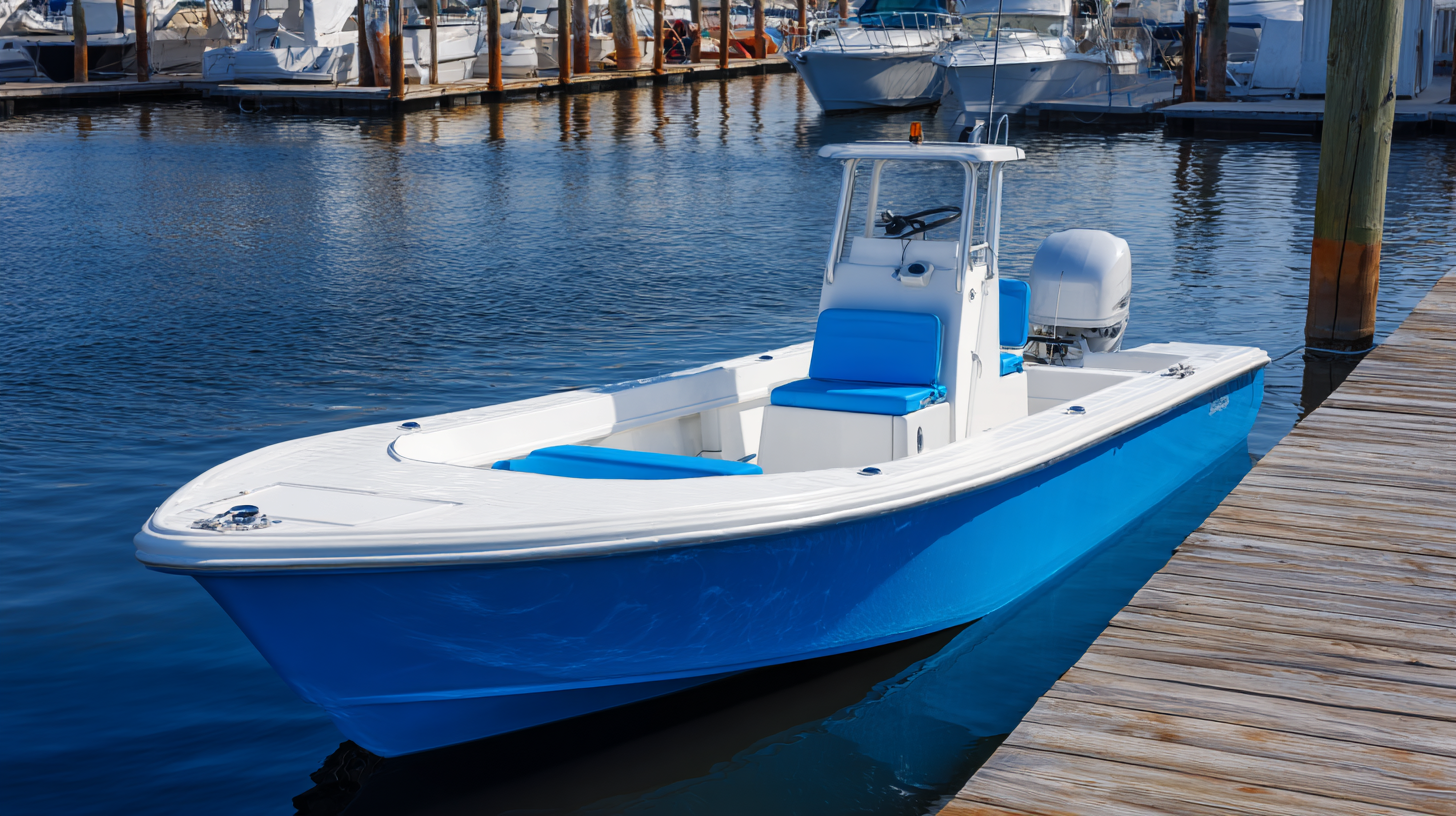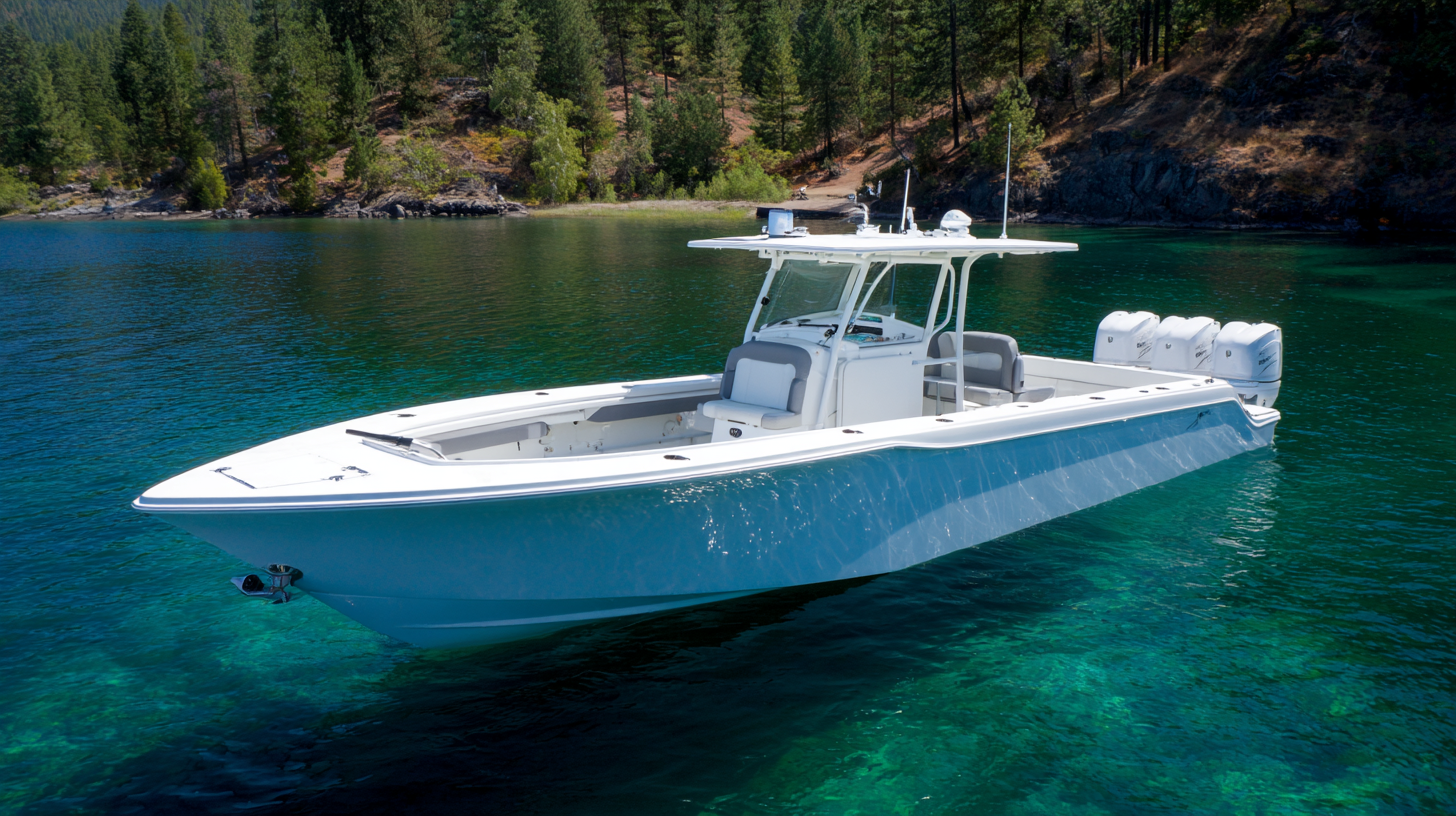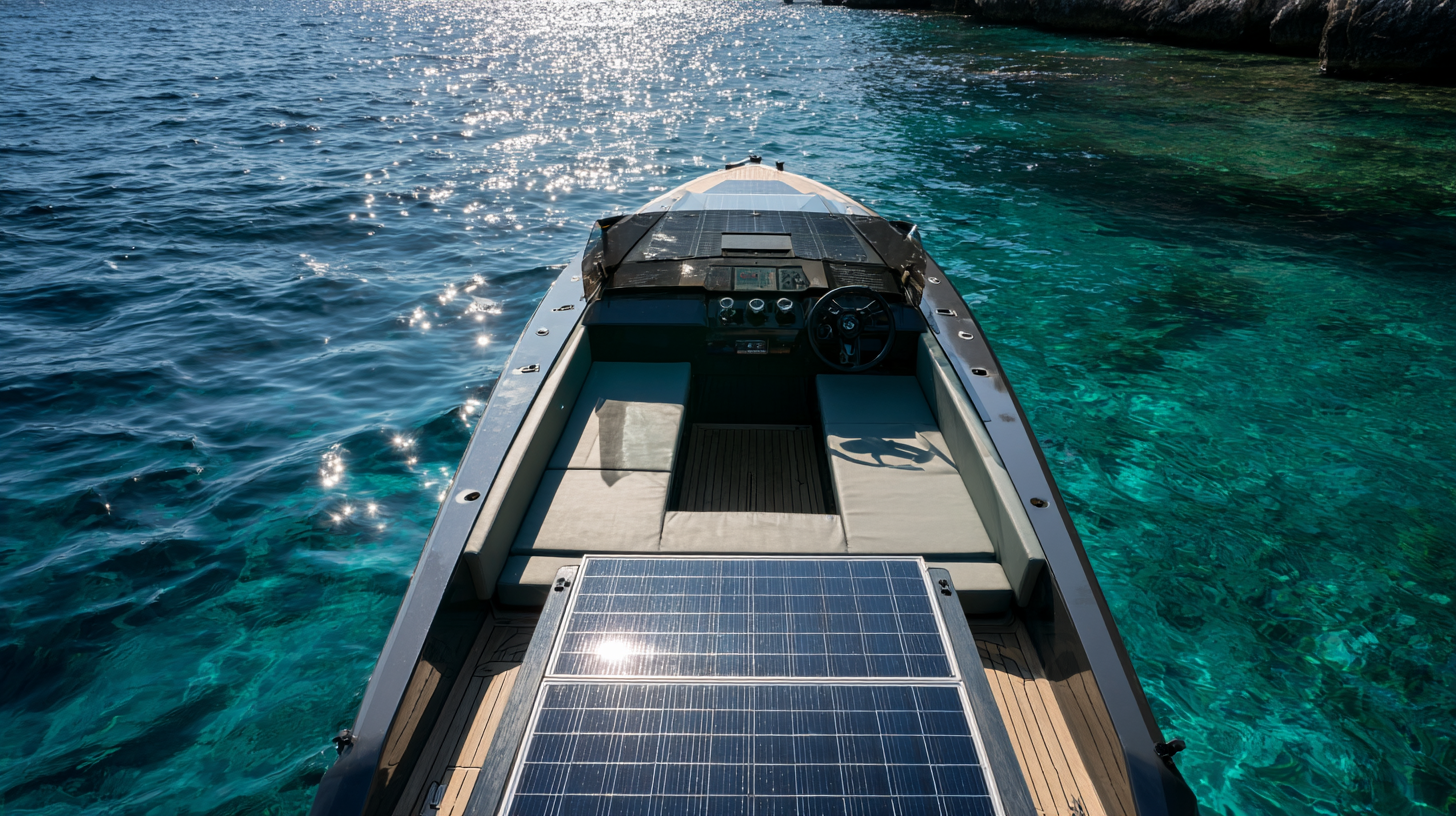Factory Tour
Ultimate Guide to Choosing the Best 48v Electric Boat Battery with IP67 Rating
In the rapidly evolving marine industry, the demand for reliable and high-performance power solutions has never been more critical. As recreational boating and electric propulsion technologies gain popularity, choosing the right power source becomes essential. Particularly, the 48v Electric Boat Battery with IP67 rating stands out as a preferred choice among enthusiasts and professionals alike. According to a recent market analysis by Research and Markets, the global electric boat battery market is expected to grow significantly, driven by advancements in battery technology and increasing environmental awareness. With an IP67 rating, these batteries offer robust protection against dust and water, enhancing durability and performance in challenging marine environments. This ultimate guide aims to equip you with the necessary knowledge and a comprehensive checklist to make an informed decision when selecting the best 48v Electric Boat Battery IP67 for your vessel, ensuring a safe and enjoyable boating experience.

Understanding the Importance of IP67 Ratings for 48v Electric Boat Batteries
When selecting the ideal 48V electric boat battery, understanding the significance of the IP67 rating is paramount. The IP67 rating indicates that the battery is both dust-tight and can withstand being submerged in water up to one meter for a limited duration. This level of protection is particularly crucial for electric boats, which often operate in unpredictable marine environments. With electric boating gaining traction, as evidenced by the increasing deployment of electric and hydrogen-powered vessels, choosing a battery with a robust IP67 rating ensures reliability and longevity.
Recent innovations in electric boating technology highlight the need for high-quality battery systems. For instance, recent partnerships between companies in the automotive and maritime industries aim to enhance battery performance to meet the rigorous demands of water travel. The rise of high-capacity electric boats necessitates batteries that are not only powerful but also resilient against harsh conditions. An IP67-rated battery can significantly contribute to the operational success of electric boats, ensuring they can endure splashes, rain, or even accidental submersion, thus enabling a smoother and safer boating experience.

Key Considerations When Selecting a 48v Electric Boat Battery
When selecting a 48v electric boat battery, one key consideration is the IP67 rating, which indicates the battery's level of protection against dust and water ingress. According to the International Electrotechnical Commission (IEC), an IP67 rating means the battery can withstand immersion in water up to 1 meter for 30 minutes. This feature is crucial for marine applications where exposure to harsh weather conditions is common. Studies show that boats equipped with IP67-rated batteries have a significantly lower failure rate, especially in saltwater environments.
Another important factor is battery chemistry; lithium-ion batteries are often the preferred choice due to their higher energy density and longevity. Reports from the Battery University indicate that lithium-ion batteries can last up to 10 years with proper maintenance, compared to only 3-5 years for lead-acid alternatives. Additionally, these batteries are typically lighter and offer faster charging times, greatly enhancing overall boat performance. When making your selection, it's essential to consider both the battery's specifications and its durability in marine conditions to ensure a reliable and efficient boating experience.
Ultimate Guide to Choosing the Best 48v Electric Boat Battery with IP67 Rating
| Feature | Description | Value |
|---|---|---|
| Battery Type | Lithium-Ion | High energy density, lightweight |
| Capacity | Ah Rating | 100Ah |
| Discharge Rate | Continuous Power Output | 80A |
| IP Rating | Protection Against Water & Dust | IP67 |
| Dimensions | Size of the Battery | 12 x 7 x 10 inches |
| Weight | Total Weight of Battery | 75 lbs |
| Cycle Life | Number of Charge/Discharge Cycles | 3000 cycles |
| Charging Time | Time to Fully Charge | 6-8 hours |
| Warranty | Manufacturer’s Warranty Period | 5 years |
Comparing Lithium-ion vs. Lead-acid Batteries for Marine Use
When it comes to powering your 48v electric boat, choosing between lithium-ion and lead-acid batteries is crucial. Lithium-ion batteries have become increasingly popular in marine applications due to their higher energy density, lighter weight, and longer lifespan. They can typically draw more power than lead-acid batteries, allowing for faster acceleration and better performance on the water. Additionally, lithium-ion batteries require less maintenance and allow for a more compact installation, making them an attractive option for modern boating.
On the other hand, lead-acid batteries, while heavier and offering a shorter lifespan, remain a cost-effective choice for many boaters. They have been used for decades and come with a well-understood set of performance characteristics. However, it’s important to keep in mind that lead-acid batteries are often less efficient and require regular maintenance to ensure optimal performance.
**Tips:** When choosing a battery, consider your boating style and frequency of use. For regular use and long-term investment, lithium-ion batteries are recommended. However, if you’re a casual boater or are working with a tighter budget, lead-acid options may suffice. Additionally, always ensure your battery has an IP67 rating for reliable waterproofing, especially in marine environments.
Top Brands Offering Reliable 48v Electric Boat Batteries with IP67 Ratings
When selecting a 48v electric boat battery, reliability is of utmost importance, especially in marine environments. An IP67 rating is a key feature to consider, as it ensures that the battery is both dust-tight and can withstand immersion in water up to 1 meter for a duration of 30 minutes. This type of protection is essential for boaters who encounter frequent exposure to moisture and harsh conditions. Fortunately, several top brands offer reputable options that meet these criteria.
One such brand is Battle Born Batteries, known for their high-quality lithium-ion batteries. Their 48v batteries not only boast an IP67 rating but also provide excellent longevity and performance, making them a popular choice among electric boat enthusiasts. Another notable contender is Relion Battery, which combines advanced technology with robust design, ensuring their batteries can handle the rigors of marine adventures. Additionally, brands like Lifeline Batteries are committed to providing reliable power solutions, further enhancing the options available for boating aficionados seeking durability and performance on the water.
Battery Performance Comparison - 48V Electric Boat Batteries
This chart compares the cycle life and depth of discharge (DoD) of various 48V electric boat batteries with an IP67 rating. It showcases the performance metrics of these batteries that are crucial for effective marine applications.
Maintenance Tips for Prolonging the Life of Your 48v Electric Boat Battery
When it comes to maintaining your 48v electric boat battery with an IP67 rating, proper care can significantly prolong its lifespan and efficiency. One essential tip is to regularly check the battery connections for any signs of corrosion or looseness. Keeping terminals clean and secure ensures optimal performance and reduces the risk of short circuits. Additionally, make it a habit to inspect the battery casing for cracks or damage, as this can lead to water ingress and compromise the battery’s integrity.

Another crucial aspect of maintenance is to store the battery in a compatible environment. Elevated temperatures can lead to faster degradation, so it’s best to keep the battery in a cool, dry place when not in use. Moreover, periodically cycling the battery can enhance its longevity. Avoid leaving it in a fully charged or completely discharged state for prolonged periods. Instead, aim for a charge level between 20% and 80% whenever possible to maintain the optimal balance and health of your electric boat battery.







